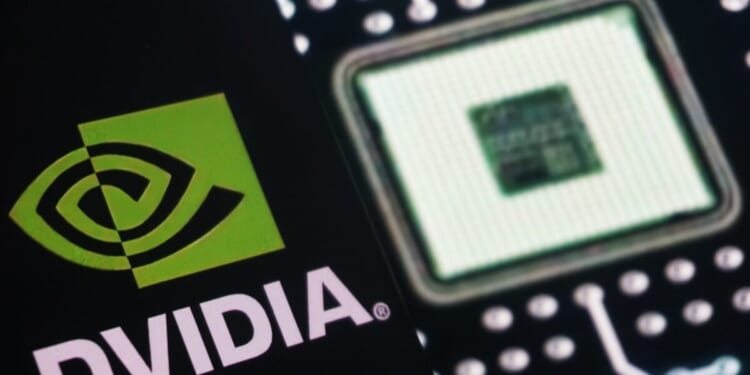On Monday, Commerce Secretary Howard Lutnick said that President Donald Trump faces a high-stakes decision: Where to draw the line on exporting American AI technology to China.
“Is it more of a national security risk to give China some of these high-powered chips, or is it more of a national security risk to not have US tech in China?” Bloomberg anchor Lisa Abramowicz asked the commerce secretary in an interview on Monday.
“Well, that is the question … in front of the president,” Lutnick replied.
As the commerce secretary, Lutnick oversees America’s export-control system. These rules regulate which sensitive technologies can be sold abroad. Nvidia’s AI chips have become a contentious part of that system. Lutnick explained that the President “decides whether to sell those chips or not, and then we will execute it however he decides to go forward.”
Abramowicz pressed Lutnick specifically on whether the administration will allow Nvidia to sell its H200 AI chips to China. The H200 is not as advanced as the new Blackwell chips, which President Trump said will not be allowed for export, but is more advanced than the H20 chips, which were approved for export earlier this year.
Some experts warn that allowing sales of H200 AI chips would go too far.
Samuel Hammond, chief economist at the Foundation for American Innovation, told The Daily Wire, “Permitting H200 exports to China would be a world-historic mistake. America’s current lead in AI would be radically diminished with very little show for it.”
Hammond said the United States has an advantage, but it’s far from secure. “Our lead is incredibly fragile. China is massively outbuilding us on energy, leaving us vulnerable to being leapfrogged but for export controls,” he said. If export controls were lifted entirely, he warned, America’s computing advantage would “quickly drop from nearly 30x to just 4x.”
President Trump’s AI Czar, David Sacks, emphasized this at the Salesforce Dreamforce conference last month, stressing that the decision is far from straightforward.
“What we ship to China is complicated,” Sacks said.
Under the current policy, only less advanced chips are exported. But Sacks noted that the fight in Washington is over where that line should be drawn. He said, “Some people want to draw that line very, very restrictively.”
He argued that Washington’s mindset contrasts sharply with Silicon Valley’s, the place where Sacks built his career.
“What Washington wants is control … The bureaucracies want to control these decisions. They want you to apply for a license and get their permission to do business,” he said. “If we let the bureaucracy win, we are going to kill American competitiveness all over the world.”
Silicon Valley takes a different view. “Everyone in Silicon Valley understands that the way that you win a technology race is to have the biggest ecosystem … the most developers … the most apps in your app store,” he said. “You just want everybody to be building on top of your technology stack. And that’s what we want for the United States.”
Sacks believes Trump’s approach to China should be nuanced.
“I don’t think you want to sell China our latest and greatest chips because it would be too much of an advantage for them. But if you deprive them entirely, there are two issues with that.”
First, the economies of the United States and China are linked through trade, Sacks said. “We saw that recently with the rare earths, where they cut us off and imposed new requirements on that. So as long as we need some things from China, we are going to have to reciprocate in some way.”
Second, U.S. companies competing against China can weaken Chinese AI competitors such as Huawei, he continued.
“China wants Huawei to scale up and dominate the Chinese market and then use that to then dominate the world market,” Sacks said. “And what Huawei would want is for all American chips to be banned in China so they can dominate that huge market for themselves.”
“I wouldn’t give them the latest and greatest,” he said, “but if we can take share away from Huawei with a less current chip, then that’s something I think we should consider doing.”
President Trump wrote on Truth Social Monday that he talked to China’s President Xi Jinping, but did not directly mention Nvidia’s H200 chips. “We discussed many topics including Ukraine/Russia, Fentanyl, Soybeans, and other Farm Products, etc.”

















